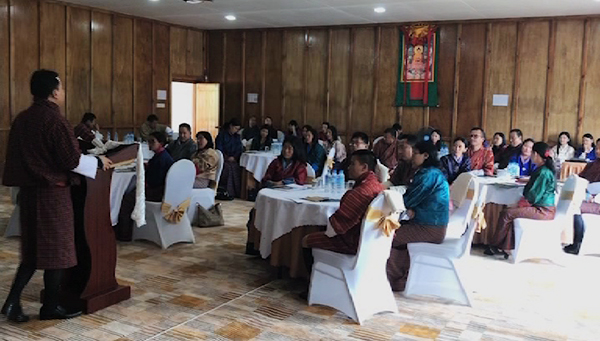 To improve access to justice and offer an alternative to adversarial litigations, the Bhutan National Legal Institute (BNLI) will institutionalise the Court-Annexed Mediation in the judiciary system of Bhutan. It will first be established in eight courts across the country. As part of it, the Chief Justice launched four booklets on Court-Annexed Mediation in Paro recently.
To improve access to justice and offer an alternative to adversarial litigations, the Bhutan National Legal Institute (BNLI) will institutionalise the Court-Annexed Mediation in the judiciary system of Bhutan. It will first be established in eight courts across the country. As part of it, the Chief Justice launched four booklets on Court-Annexed Mediation in Paro recently.
Court-Annexed Mediation is a process where trained judicial mediators will mediate the cases and draft mediation settlement agreements, which the court will endorse as its judgment for enforcement.
As per the Civil and Criminal Procedure Code of Bhutan 2001, judges provide mediation opportunity anytime before the delivery of the judgment upon the request of the parties. However, many appellants expressed difficulty in finding mediators outside a court.
“There is only one Judge to look over many cases and when they divide time amongst the cases, it becomes limited. So, mediation will benefit people by saving time and cost,” Sangay Choedup, the Legal Officer of BNLI, said.
He added the Court-Annexed Mediation Unit will take in all the civil cases and meditate on compensation in case of criminal cases. But the service is voluntary and will be provided only upon the request of the parties involved.
“The court will verify if the case is to be forwarded to the Court-Annexed Mediation Unit. Those involved parties should request the mediation service. Once the court approves, the judge will hand over the evidence and documents to the mediator. If the litigants haven’t submitted evidence, they will be given three days to do so.”
This mediation will be confidential and a witness will attend only if the parties ask for one.
For now, the only fear of establishing Court-Annexed Mediation is that it might undermine the roles of community mediators. However, officials said they will create awareness about the importance of community mediation.
“There are mediators in the villages. But when we have mediators even in the courts, people might directly choose the mediators in the court. This could lead to the disappearance of community mediation practices. However, we have researched and looked at the possibilities of overcoming such a challenge,” Sangay Choedup added.
30 senior clerks of eight courts in Thimphu, Paro, Haa, Wangdue, Chukha, Punakha, Phuntsholing and Gelephu will be trained on the skills and techniques of mediation.
The BNLI plans on training enough mediators to operationalise the Court-Annexed Mediation unit in all courts within the next five years.







